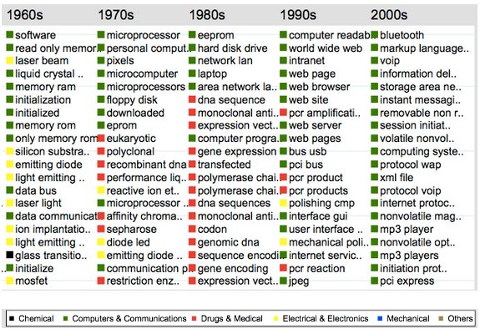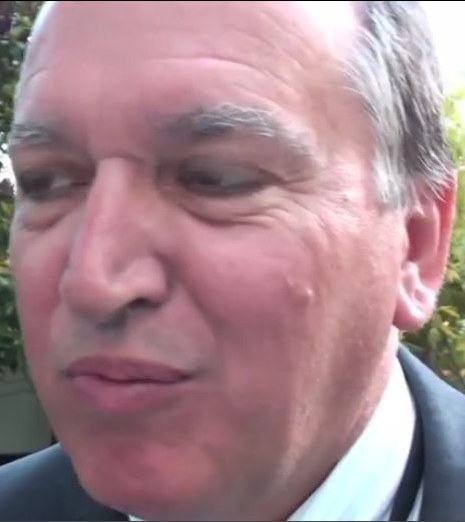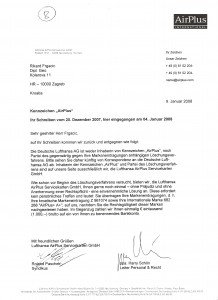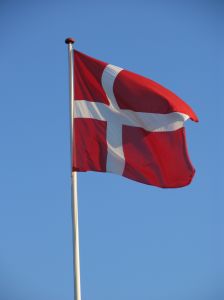The internationalisation of law, or the leaning of the legal process towards few globalists, is not unique to patents. As the first addendum in this new document serves to show, lawyers now view Europe as a country, the largest country in terms of GDP (see the misleading chart). This document is essentially a letter in which AIPLA comments to the EPO regarding the Unitary Patent post-grant fees.
As a source had explained it to us (before we read the document in full), this text has useful “information about current developments concerning the EU Unitary Patent” because it is new and it reveals the workings behind the scenes. “The document referenced,” explained our source, “is a letter from the American IP Law Association to the EPO on the subject of post-grant fees for the Unitary Patent.”
What we have found in this letter is the President of the American Intellectual Property Law Association speaking for patent lawyers and their clients (large corporations), conducting what we can describe as “lobbying” (to put it politely) if not corporate legislation laundering, making it cheaper to acquire and enforce monopolies Europe-wide (even from abroad) for a lower overall cost. Here is the full letter:
February 11, 2015
Dr. Margot Fröhlinger
Principal Director
Patent Law and Multilateral Affairs
European Patent Office
Bob-van-Benthem-Platz 1
80469 Munich, GERMANY
Via email: mfroehlinger@epo.org
Re: Unitary Patent Post Grant Fees
Dear Dr. Fröhlinger:
I am writing on behalf of the American Intellectual Property Law Association (AIPLA) to follow-up on our January 28, 2014, letter to Mr. Jérôme Debrulle, Chairman of the Select Committee (copy attached), and our February 3, 2015, video consultation with you and others at the EPO regarding Unitary Patent post-grant fees.
AIPLA is a national bar association with approximately 15,000 members who are primarily lawyers in private and corporate practice and government service and in the academic community. AIPLA’s members represent a wide and diverse spectrum of individuals, companies, and institutions, and are involved directly or indirectly in the practice of patent, trademark, copyright, and unfair competition law. Our members represent both owners and users of intellectual property.
We thank you and your colleagues for the February 3rd consultation and for having sent us background materials on past validations and renewals of European Patents, and on Unitary Patent renewal fee models being considered by the EPO.
We applaud the steps that have been taken to create a Unitary Patent system in the European Union. In order for the Unitary Patent to be a success, it should make “access to the European patent system easier, less costly and legally secure,” and “eliminate costs and complexity ….,” as promised in EU Reg. No. 1257/2012, Recital (4).
As we stated orally and presented in our slides during the consultation, our discussions with members representing U.S. owners of European Patents and applications (“Users” of the
European Patent system) in the year since our earlier letter indicate that the primary consideration for most Users in deciding the countries in which to validate and maintain European Patents is the budget available for the patent owner’s patent grant and annual renewals.
Almost all Users have limited budgets for patent validations and renewals. Different Users have different patent validation and renewal policies and different tactical decisions within those policies, case-by-case and year-by-year. Validation and renewal policies typically depend upon the nature and value of the products and businesses that are or will be protected. The cost and benefit are typically reviewed with each annuity payment. Users very carefully examine the cost and benefits of patents in each jurisdiction when deciding to file applications, pay granting costs, validate European Patents and national patents, and renew them, particularly after the tenth year from first filing date.
We are not aware of sufficient demand for broad territorial protection in Europe that would overcome or loosen these budgetary constraints.
European patents are perhaps the most difficult of all patents to justify on a cost-benefit basis. In particular, European Patent renewal fees do not compare favorably with renewal fees of the U.S. Patent and Trademark Office and other major patent offices. The EU states participating in the Unitary Patent have a collective GDP less than that of the United States (see Addendum, slides 1-2), yet the current renewal fees for only the top three patenting states in Europe are substantially higher than for all of the United States (slide 3).
Our research indicates that Users are not likely to significantly increase their European patent budgets to take advantage of Unitary Patents. Instead, Users feel pressure to direct an increasing share of patent budgets to other jurisdictions. GDP is growing at a faster rate outside Europe than within. In the 40 years since the EPO was established, Japan and the Republic of Korea have become major states in terms of patenting. China, India, Russia and Brazil (the “BRIC” states) have also become increasingly important. The World Intellectual Property Organization data provided on our slide 4 reflect the large number of patent applications filed in China in 2014, and that the patent offices in Brazil, Russia and India are now among the top 10 offices for patent filings.
1. Viable Alternatives
Unlike the situation in the United States, where there is only one option for a U.S. patent, Users have several alternatives in Europe. Direct-filed national patents and national validations of European Patents offer protection tailored to the perceived needs of Users. The Unitary Patent will offer another alternative. Users will likely continue to evaluate each of these alternatives based on costs.
Users have become comfortable with limited territorial patent coverage in Europe. They can obtain sufficient coverage to deter broad competition by patenting in a few key states that are members of the London Agreement. In most cases, litigation in one European state leads to resolution of multi-state disputes.
The data you provided to us indicates that in 65% of the cases, U.S. Users validate in 1 to 3 states. We expect that almost all of these validations are in the top three (Germany, France and
Great Britain), which are parties to the London Agreement. These states do not require the specification to be translated, in contrast to the requirements for a Unitary Patent (see discussion in Section 2 of this letter). Users desiring protection in seven other Unitary Patent participating states, including the Netherlands and Sweden, need to translate only the claims.
Therefore, depending on the level of Unitary Patent renewal fees, validation in London Agreement States only may be a more attractive option because of lower costs, availability of selective abandonment to control costs, and availability of a choice of enforcement forum, for example, in the Unified Patent Court in English, or in a national court at presumably lower court costs.
2. The User’s Decision at Grant
The key decision to be made by a User following receipt of the EPO’s decision to grant a European Patent will be whether to elect a Unitary Patent, validate the European Patent as one or
more national patents, or abandon the application. That decision will depend primarily on the potential costs perceived at that time, as compared with viable alternatives, and any procedural obstacles.
As shown by your data, 23% of European Patents granted to U.S. Users in 2011 were only validated in 1 or 2 states. We suspect that the Users did not believe that the costs of validation and prospective renewal fees justified validation in additional states. The majority of US-origin cases (58%) were validated in 3 or 4 states. These cases likely would be the principal candidates for Unitary Patents.
We appreciate that there will be no official fee for electing a Unitary Patent. We have assumed for comparative purposes that the fees of a European Patent Attorney or annuity payment service for recording the Unitary Patent election and filing the specification translation will be comparable to the average fee for validation in one state. Those facts are favorable to electing a Unitary Patent.
We believe that the cost of the required translation of the Unitary Patent specification may be an obstacle for many Users. It has been suggested that the cost could be very low, because a machine translation or the same translation prepared for Italy or Spain could be used. However, European Patent Attorneys are advising that a human translation is required, because EU Regulation No 1260/2012, Recital 12 states: “Such translations should not be carried out by automated means….” Although we understand that there is no provision for examination of this translation by the EPO or participating states, we expect that Users will follow the advice of their European Patent Attorneys, resulting in increased translation costs. Also, it appears that the majority of U.S. Users do not validate in Italy or Spain. Therefore, until such time as the Select Committee declares that machine translations are acceptable, at least into one language other than English for this purpose, Users are likely to include the cost of a human translation in their evaluation of the cost of a Unitary Patent. We suggest that the EPO and its Select Committee should do the same in their cost models.
Further, the fact that the deadline for electing a Unitary Patent and filing a translation of the specification is earlier than the deadline for validating as national patents is likely to reduce use of the Unitary Patent. While our consultation participants understand that Users will have a long time to reach their decision, we believe that many Users will continue to focus on the national patent deadline, and may miss the earlier Unitary Patent deadline. It would be helpful if Unitary Patent Rule 7 could make it clear that Users may have at least until the same date as the national patent validation deadline within which to file the Unitary Patent specification translation.
3. Renewal Fees
The prospective costs of renewal are a major consideration for Users in deciding where to file patent applications, where to validate patents, and where to renew patents. Typically, Users conduct annual reviews to decide which patents to maintain and which to abandon in the context of their business objectives and patent budgets.
As we explained in the consultation, selective abandonment of patents in some states is a key tool in managing renewal costs. The lack of the ability to selectively abandon parts of a Unitary Patent will be a deterrent to electing Unitary Patent protection, which can only be overcome by making the costs reasonable for a majority of Users. Selective abandonment is probably considered in 80-90% of the renewal decisions beginning a few years after grant.
EPO representatives have suggested, prior to and during our consultation, that selective abandonment is not important because it is not exercised frequently, pointing to data from the TOP 3 states. However, the actual exercise of selective abandonment is not a good measure of the effect that its unavailability may have on elections of a Unitary Patent. Rather, the important consideration for Users is the ability to consider selective abandonment when making renewal decisions. Any evidence that selective abandonment is not exercised frequently in the TOP 3 states suggests that the TOP 3 Unitary Patent renewal fee model might be attractive to those now validating in the TOP 3. However, the inability to consider selective abandonment could very well be a deterrent if the Unitary Patent renewal fees are higher.
4. The EPO’s Cost Models
The EPO has suggested consideration of several cost models, called TOP 3, TOP 4, etc., apparently based on the sum of the renewal fees of the most selected Unitary Patent participating states chosen for validation in 2011.
We suggest that use of the EPO fees through the median year for EPO grant (which we believe is year 6) would improve the models. Also, the models appear to be based solely on validations and do not take account of abandonments, including selective abandonments. We suggest that when the models are compared, differences in abandonments should be considered.
The TOP 3 model, based on renewal fees in Germany, France and Great Britain, appears to be otherwise accurate, at least for U.S. Users. When 3 states are selected, those are the states usually selected.
We do not believe that the TOP 4 model is representative of all cases in which Users have validated in 4 states. In particular, the EPO’s TOP 4 includes the Netherlands, which is in fact included in 4 state validations less than 50% of the time and has very high renewal fees. Validations in the Netherlands are much less frequent than in Germany, France and Great Britain, and the reasons for many Netherlands validations appear to be based on the patent strategy of specific User groups.
5. Our Suggestions
In general, we suggest that the EPO recommend and the Select Committee adopt a fee schedule that will attract a majority of European Patent cases, namely those of the type that were validated in 3 or 4 of the participating states in 2011. As we explain below, for the Unitary Patent to be attractive to most Users accustomed to the existing European Patent validation system, we recommend the TOP 3 cost model for annuity fees.
In our consultation, we discussed some of the comparative costs in the frequently chosen London Agreement states and for Unitary Patent. We suggest that the EPO should recognize that the need to pay for a human translation of the specification at the time of election will be a deterrent. The EPO should seek to overcome that deterrent, for example, by making the renewal fee schedule more attractive.
We further suggest that, when comparing the costs of national validations and renewals, the EPO should use the typical charges of the major patent annuity service companies (identifiable by an Internet search). They are typically used for post-grant services by Users with more than a few patents and are much less expensive than the renewal service fees charged by most European Patent Attorneys.
We appreciate the concern of EPO management and the Select Committee over receiving adequate renewal fee revenue to comply with the requirements of EU Regulation No. 1257/2012, Article 12 that the renewal fees be set at a level that will cover Unitary Patent costs and assure a balanced EPO budget. It appears, however, that setting the Unitary Patent renewal fees too low should not be a concern. We believe that there are three reasons for this. First, any such concern appears primarily to be based on the idea that some Users would elect a Unitary Patent for cases of the type they now validate in many states and maintain for many years, resulting in much lower renewal fee income for the EPO. We do not expect that Users pursuing the multi-state and/or long term strategies will select Unitary Patents. They are most likely to want the advantages of individual national patents, including the opportunity for selective abandonment and lack of central attack, including the ability to opt-out of the Unified Patent Court. Second, we suggest that the choice between a Unitary Patent and national validations is likely to be revenue neutral, at least as a first order approximation in most cases. That is because the amount
available in budgets for renewal fees in a given year for Europe is likely to be constant. Third, that choice will have a relatively small effect on the EPO’s total renewal fee income in early years of the Unitary Patent, because election of the Unitary Patent probably will grow slowly for 2-3 years and because the fees are relatively small in early years.
Finally, we offer our specific suggestions regarding the level of renewal fees. Although the TOP 3 compares unfavorably with renewal fees in the U.S. and elsewhere, current validation data suggests that it could be attractive to a significant number of Users.
We recommend against adoption of the TOP 4 model. It compares unfavorably with renewal fees elsewhere, appears to be higher than what Users selecting 4 Unitary Patent states are now paying, and lacks the important tool of selective abandonment.
It is difficult to project User behavior that may affect the Unitary Patent choices and resulting fee income. Rather than setting the renewal fee schedule now at a high level in an attempt to increase fee income, which may deter use of the Unitary Patent, we suggest that the EPO and Select Committee review the fees after 5 years and adjust them if necessary (preferably only for latergranted patents).
* * *
Thank you again for the opportunity to consult with you and your colleagues on this important
issue. We welcome the opportunity for further discussion on this and other matters of interest to
potential users of the Unitary Patent system.
Sincerely yours,
Sharon A. Israel
President
American Intellectual Property Law Association
[Addenda omitted]
The goal here is to reduce the cost to corporations in the States (and increase profit for lawyers in the States) while increasing the risk and passing the cost to European citizens. It’s just looting. It’s passage of wealth.
Aspirations like these lead us all closer to ‘harmonisation’ of US and EU patent law, almost certainly exporting USPTO monopolies to Europe and legitimising software patents, not only bringing trolls across the Atlantic ocean. The USPTO is still patenting life as this new article serves to remind us. “For many years,” writes TechDirt, “we’ve been covering the story of Myriad Genetics, the biotech company that has a test for the BRCA1 and BRCA2 genes (often an indicator of a higher risk for breast cancer). The company argued that because of its patent on those genes, no one else could test for those genes. Back in 2013, the Supreme Court did the right thing and finally rejected the concept of gene patents, despite years of the USPTO granting such patents. As the court noted, allowing gene patents created a perverse situation in which a single company could have the exclusive right to isolate a person’s own genes — and that’s just not right.”
Well, insanity is ‘sane’ when corporations decide so. If they get their way with the crooked management of the EPO, then we’ll become even more helpless in the face of corporate power from abroad. That’s just an attack on European democracy and a descend into fuedalism, where science cannot be practiced without permission from (or a tax paid to) few global ‘masters’. █























 Content is available under CC-BY-SA
Content is available under CC-BY-SA